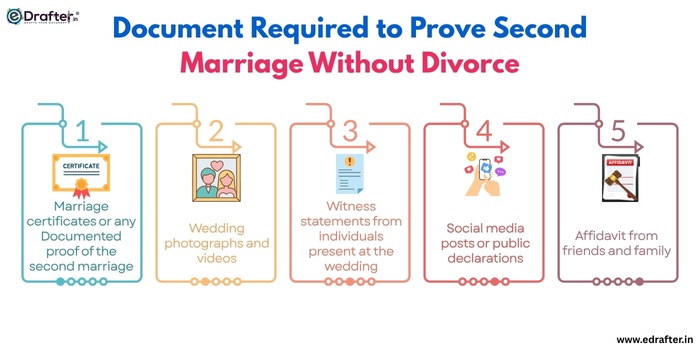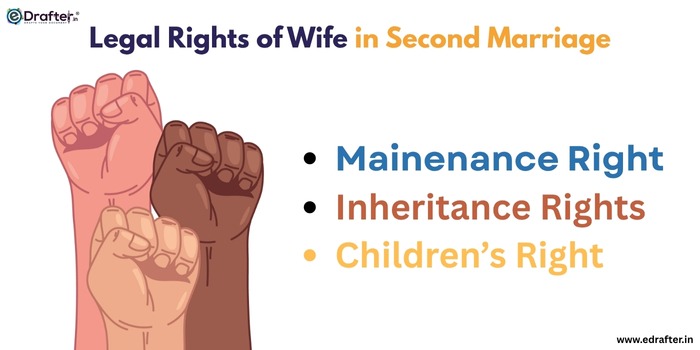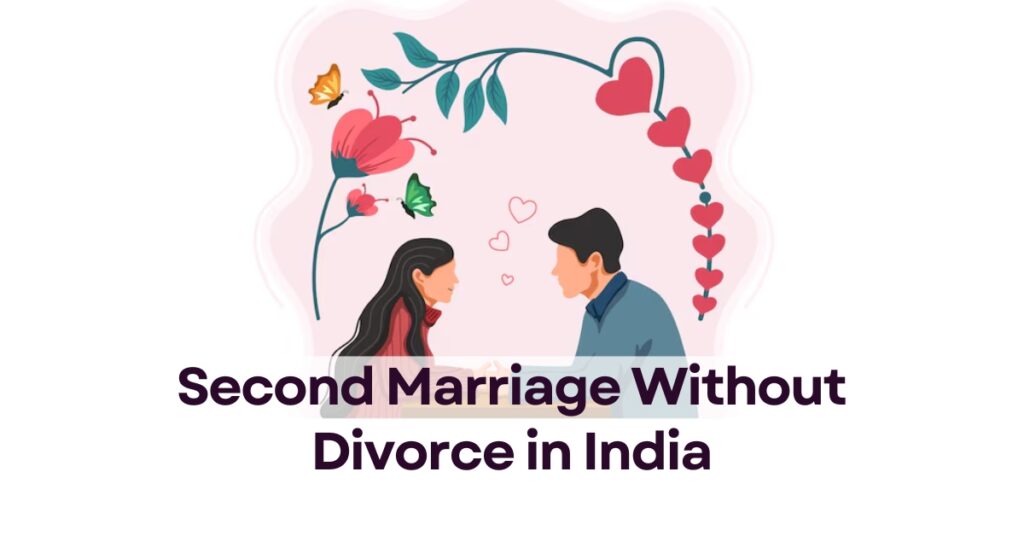Table of Contents
In India, marriage is not just a sacred institution, but rather a matter of religious affair which is governed by personal laws based on religion. However, many people wonder whether a second marriage without divorce is Legally valid. Whether due to personal, social, or religious reasons, some individuals enter a 2nd marriage without divorce, but this raises serious Legal consequences. This blog explores the Indian law for second marriage without divorce, the potential punishments, and the Legal rights of the spouses involved.
Is It Valid to Get Married Without Divorce in India?
No, a second marriage without divorce in India is not Legally valid. As per Indian law, if a person is already married and the marriage is not Legally dissolved, marrying another person is considered bigamy. This is a criminal offence under Section 494 of the Indian Penal Code (IPC), now Section 82(2) of Bharatiya Nyaya Sanhita (BNS). However, exceptions exist in cases where the first marriage is declared invalid by a court of law due to Legal consequences, or where the personal laws allow multiple marriages and are culturally accepted.
Are Two Marriages Legal in India?
Under most personal laws in India, two marriages are not Legally permitted if the first spouse is still alive, and the marriage is not Legally dissolved. Here’s a breakdown of 2nd marriage law in India:
- Hindu Marriage Act, 1955 (HMA): Prohibits polygamy. A second marriage is only Legal after obtaining a divorce from the first spouse.
- Muslim Personal Law: Allows a Muslim man to have up to four wives at the same time but with conditions.
- Special Marriage Act, 1954: Does not allow a second marriage without divorce.
- Christian and Parsi Marriage Laws: Do not allow bigamy and a second marriage without divorce is punishable.
Also Read – Divorce Rules
How to Prove a Second Marriage Without Divorce?
To establish that someone has entered a second marriage in India without divorce, the following evidence is generally required:

- Marriage certificates or any Documented proof of the second marriage
- Wedding photographs and videos
- Witness statements from individuals present at the wedding
- Social media posts or public declarations
- Affidavit from friends and family
Note: An affidavit is a written statement claiming that the Document/claims made are officially true and can be used as a piece of evidence by the court.
What Is the IPC Section for Second Marriage?
Section 494 of the Indian Penal Code (IPC), now Section 82(2) of Bharatiya Nyaya Sanhita (BNS) deals with bigamy, stating that anyone who marries while their spouse is still alive and without obtaining a Legal divorce is guilty of a criminal offence. Additionally, Section 495 IPC states the punishment if the second marriage is conducted by hiding the first marriage.
What Are the Legal Rights of a Wife in a Second Marriage?
A wife in an ilLegal second marriage may not have the same rights as wife as a Legally wedded spouse. However, the courts have provided some relief under specific circumstances:

- Maintenance Rights: Under Section 125 of the CrPC, a woman in an invalid second marriage may claim maintenance if she was unaware of the first marriage.
- Inheritance Rights: A second wife in an ilLegal marriage generally does not have property rights.
- Children’s Rights: The children from such a marriage are considered legitimate and have inheritance rights.
What Is the Punishment for a Second Marriage Without Divorce in India?
The punishment for a second marriage without divorce in India varies under different Legal provisions:
- Under Section 494 IPC: Imprisonment up to 7 years and/or a fine.
- Under Section 495 IPC: If the first marriage is concealed, the punishment extends to 10 years of imprisonment.
- Hindu Marriage Act (HMA), 1955: The second marriage is automatically void, and the person may face Legal consequences.
Provision of Second Marriage in Hindu Marriage Act
The Hindu Marriage Act (HMA), 1955 does not allow a second marriage in India without divorce. According to Section 5 of HMA, a valid marriage requires that neither party has a living spouse. A second marriage under HMA without Legally dissolving the first marriage is null and void under Section 11 of the Act and punishable under Section 17.
What Is the Latest Supreme Court Judgement on Second Marriage?
The latest Supreme Court judgments on second marriage have consistently upheld that bigamy is ilLegal under Indian law. In multiple cases, the court has ruled that a second marriage without divorce is void and punishable under IPC and personal laws. Courts have also emphasized the importance of protecting the rights of women and children from such marriages.
What If Husband and Wife Live Separately Without Divorce?
Living separately does not amount to divorce under Indian law. Even if a husband and wife have been living apart for years, the marriage remains Legally valid unless formally dissolved through a court decree of divorce. Engaging in a second marriage in India without divorce under such circumstances is still considered bigamy and punishable by law.
Conclusion
A second marriage without the consent of the first wife and without a Legal divorce is ilLegal in India. The consequences include criminal prosecution, imprisonment, and fines. If a person wishes to remarry, they must obtain a Legally valid divorce from their existing spouse. Anyone affected by such a situation should seek Legal assistance by consulting a lawyer to understand their rights and remedies under Indian law.
If you or someone you know is involved in such a situation, consulting a Legal expert is strongly recommended to understand the complexities of marriage laws in India.


